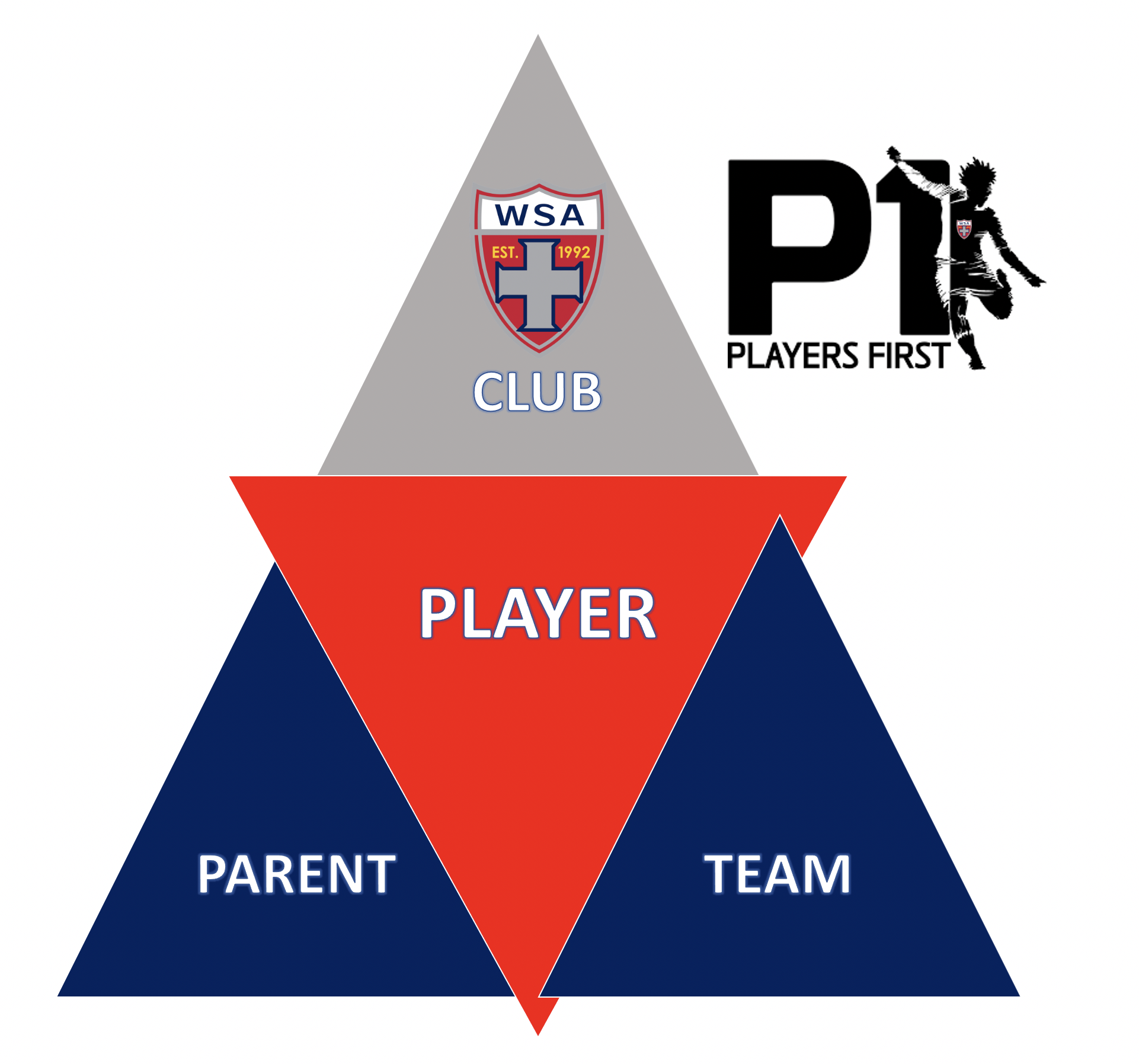Achievement+
Perspective+
Perseverance
WEST SIDE ALLIANCE S.C.
Coaching Expectations Authored in 1995
The Side Coach’s Guidelines/Expectations
(adopted 1995)
Sportsmanship/Gamesmanship/Character/Integrity
The WSA philosophy prioritizes character growth and development over all other objectives and goals. Promoting and modeling such behavior on behalf of our youth is a priority. WSA is a “player-centered” club, and the player’s well being will always come first.
The WSA philosophy prioritizes character growth and development over all other objectives and goals. Promoting and modeling such behavior on behalf of our youth is a priority. WSA is a “player-centered” club, and the player’s well being will always come first.
Responsibility/Reliability/Mentorship
Coaches are expected to train teams twice weekly and coach the team’s weekly game during the season. Coaches attendance is important. Coaches are expected to develop year-long goals, agendas, and expectations for their team at the outset of the year. Other coaches in the club can “cover” or substitute when a coach is absent, but each team needs to identify with their coach or team coaching staff, and regular attendance is imperative for this. A significant expecation of each WSA Coach is mentorship of youth. Coaches should be available, accessbile, and present, both physically, mentally, and emotionally, to take on the responsibiltiy of coaching mentorship.
Loyalty
WSA expects that when a coach makes a decision to join the WSA staff he/she has bought into the “club philosophy”. WSA will establish a “coaching family”, rather than just a staff of coaches. Other clubs may be able to offer promises of more money, possibly more trophies, and even maybe more glory. These are lower on our priority list, and will continue to be even in the midst of our continued improvement, growth, and new heights of on field successes. The expectation is that WSA coaches share this perspective of loyalty, priority of development, and commitment to the youth.
Soccer Background
The paid coaching staff at WSA will be qualified by previous coaching experience, playing experience, or licensing, preferably collegiate or professional playing/coaching, or national licensing (but not exclusively). Coaches are expected to make efforts towards continuing education, and remain updated on the newest techniques for motivating, disciplining, and training. Coaches should demonstrate a level of expertise in the areas of game tactics, technical training, and fitness/conditioning. WSA Coaches are required to participate in the club's "WSA Way" in-house Coach Education Curriculum.
Communication
Coaches are expected to maintain open lines of communication with their team’s manager and the WSA administrative staff. Coaches’ responsibilities do not end at the training site or game field. WSA coaches are expected to formulate for their team a yearly plan, including goals and objectives for players, a playing/training schedule, a tournament agenda appropriate to team’s level and team goals, and individual player evaluations. Furthermore, coaches are expected to hold periodic “team meetings” to update parents on the above mentioned items, provide opportunity for parent feedback, and to offer clarity with regards to team direction.
Intra-Club Activities
WSA coaches are expected to participate in the full WSA experience and to lead their teams likewise. This includes covering practices for other coaches, participating in the club’s various activities (i.e. Club Functions, Club Tournaments, Recognition Nights, Fundraising, Coach Socials, Academy Style Functional Training, Winter Futsal, etc…) and offering support to other WSA coaches in an effort to establish a coaching team, and promote a soccer family atmosphere.
Dues/Pay/Money
The club operates as a "non-profit" and an annual budget that can in no way expect to compensate all of the volunteers that serve the club in a given year. WSA coaches are expected to approach their coaching duties as “professionals”, but the club expects that WSA coaches are “volunteering” the greatest majority of their time for the love of the game, and for our youth. Monthly pay for the year will be set at the January administrative meeting, and the allotment per month per team will be set and communicated to coaches in the "coaching agreement". First year coaches will operate on a “probationary” policy, and pay that is split among co-coaches will vary per team.
THE NON NEGOTIABLE: Player Centric Model



